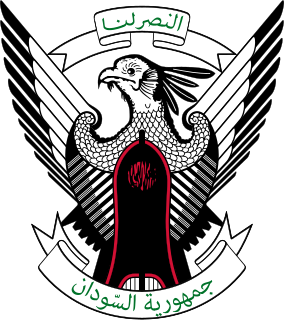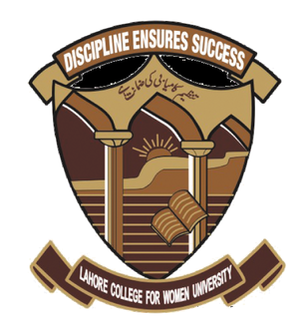
Sudan's human rights record has been widely condemned. Some human rights organizations have documented a variety of abuses and atrocities carried out by the Sudanese government over the past several years under the rule of Omar al-Bashir. The 2009 Human Rights Report by the United States Department of State noted serious concerns over human rights violations by the government and militia groups. Capital punishment, including crucifixion, is used for many crimes. In September, 2019, the government of Sudan signed an agreement with the UN High Commissioner for Human Rights to open a UN Human Rights Office in Khartoum and field offices in Darfur, Blue Nile, Southern Kordofan and East Sudan. In July 2020, during the 2019–2021 Sudanese transition to democracy, Justice Minister Nasredeen Abdulbari stated that "all the laws violating the human rights in Sudan" were to be scrapped, and for this reason, Parliament passed a series of laws in early July 2020.

The National Congress Party was a major political party that dominated domestic politics in Sudan from its foundation until the Sudanese Revolution.

University of Khartoum is a multi-campus, co-educational, public university located in Khartoum. It is the largest and oldest university in Sudan. UofK was founded as Gordon Memorial College in 1902 and established in 1956 when Sudan gained independence. Since that date, the University of Khartoum has been recognized as a top university and a high-ranked academic institution in Sudan and Africa.

Operation Lifeline Sudan (OLS) was a consortium of United Nations agencies and approximately 35 non-governmental organizations operating in southern Sudan to provide humanitarian assistance throughout war-torn and drought-afflicted regions in the South. Operation Lifeline Sudan was established in April 1989 in response to a devastating war-induced famine and other humanitarian consequences of the Second Sudanese Civil War between the Sudanese government and South Sudanese rebels. It was the result of negotiations between the UN, the Government of Sudan and the Sudan People's Liberation Movement/Army (SPLM/A) to deliver humanitarian assistance to all civilians in need, regardless of their location or political affiliation. This included over 100,000 returnees from Itang in Ethiopia in 1991. Lokichogio was the primary forward operations hub for OLS.

Education in Sudan is free and/or compulsory for children aged 6 to 13 years. Primary education up to the 2019/2020 academic year consists of eight years, followed by three years of secondary education. The primary/secondary educational ladder of 6+3+3 years was switched in 1965 and during the Omar al-Bashir presidency and is scheduled, during the 2019 Sudanese transition to democracy, to return to 6+3+3 in the 2020/2021 academic year. The primary language at all levels is Arabic. Starting in the 2020/2021 academic year, English is to be taught starting at kindergarten. Schools are concentrated in urban areas; many in the South and West were damaged or destroyed by years of civil war. In 2001 the World Bank estimated that primary enrolment was 46 percent of eligible pupils and 21 percent of secondary students. Enrolment varies widely, falling below 20 percent in some provinces. Sudan has 19 universities, in which instruction is primarily in Arabic.
The Organization for Women in Science for the Developing World (OWSD) is an international organisation that provides research training, career development and networking opportunities for women scientists throughout the developing world at different stages in their career. It was founded in 1987 and was officially launched in 1993. The organisation was formerly known as the Third World Organization for Women in Science (TWOWS). It is a program unit of UNESCO and based at the offices of The World Academy of Sciences (TWAS), in Trieste, Italy.
Sudanese literature refers to both oral as well as written works of fiction and nonfiction that were created during the cultural history of today's Republic of the Sudan. This includes the territory of what was once Anglo-Egyptian Sudan, as well as this area's long and diverse history.

The Lahore College for Women University (LCWU) is a public university in Lahore, Punjab, Pakistan.
The Sudanese Red Crescent Society (SRCS) is the biggest and most decentralized and widespread humanitarian organization operating in Sudan. The society developed out of the Sudan branch of the British Red Cross Society and was established in 1956. Upon Sudan's independence in March 1956 received official recognition as an independent National Society following the Sudanese Council of Ministers decree No. 869. The National Society covers nearly the entire country with 15 State branches and several sub-branches/units in the provinces/localities and administrative units, with a nationwide community-based network of 35,000 active volunteers and another 300,000 who can be deployed as need arises. It has well-established working relations with public authorities at federal, state and local levels, and good partnership and collaboration with Movement partners and UN specialized agencies and national and international NGOs working in Sudan.
The New Sudan Education Initiative (NESEI) is a non-profit organization based in Colchester, Vermont in the United States, which is building secondary schools throughout South Sudan, a region affected by war for nearly half a century. It was founded in January 2006 by Atem Deng, a former Sudanese refugee, and Robert Lair, a social entrepreneur and educator. The organization was created after a Comprehensive Peace Agreement was signed in 2005, bringing the conflict in southern Sudan to an official close. The CPA created a critical opportunity for development to take place in this region. In 2004, Deng and Lair asked Sudanese they met at refugee camps throughout East Africa what was most needed in their homeland. "Education" was the resounding answer they received. South Sudan currently suffers from some of the worst education access rates in the world. Female illiteracy hovers above 93%, and only 5% of young people graduate from high school. It was from these discussions with Sudanese refugees that they developed NESEI. The organization opened its first school in May 2008, near the town of Yei, and it currently plans to build 20 schools throughout South Sudan.
Sudanese refugees are persons originating from the country of Sudan, but seeking refuge outside the borders of their native country. In recent history, Sudan has been the stage for prolonged conflicts and civil wars, as well as environmental changes, namely desertification. These forces have resulted not only in violence and famine, but also the forced migration of large numbers of the Sudanese population, both inside and outside the country's borders. Given the expansive geographic territory of Sudan, and the regional and ethnic tensions and conflicts, much of the forced migration in Sudan has been internal. Yet, these populations are not immune to similar issues that typically accompany refugeedom, including economic hardship and providing themselves and their families with sustenance and basic needs. With the creation of a South Sudanese state, questions surrounding southern Sudanese IDPs may become questions of South Sudanese refugees.
Education in South Sudan is modelled after the educational system of the Republic of Sudan. Primary education consists of eight years, followed by four years of secondary education, and then four years of university instruction; the 8 + 4 + 4 system, in place since 1990. The primary language at all levels is English, as compared to the Republic of Sudan, where the language of instruction is Arabic. There is a severe shortage of English teachers and English-speaking teachers in the scientific and technical fields.
Nahid Toubia is a Sudanese surgeon and women's health rights activist, specializing in research into female genital mutilation.

Sudan is a developing nation that faces many challenges in regard to gender inequality. Freedom House gave Sudan the lowest possible ranking among repressive regimes during 2012. South Sudan received a slightly higher rating but it was also rated as "not free". In the 2013 report of 2012 data, Sudan ranks 171st out of 186 countries on the Human Development Index (HDI). Sudan also is one of very few countries that are not a signatory on the Convention on the Elimination of All Forms of Discrimination Against Women (CEDAW).
Nashwa Abo Alhassan Eassa is a nano-particle physicist from Sudan. She is an assistant professor of physics at Al-Neelain University in Khartoum.

The 2019–2022 Sudanese transition to democracy is an ongoing democratic transition in Sudan that began in July 2019.

Abdalla Hamdok is a public administrator who became the 15th Prime Minister of Sudan. Prior to his appointment, Hamdok served in numerous national and international administrative positions. From November 2011 to October 2018, he was Deputy Executive Secretary of the United Nations Economic Commission for Africa (UNECA). UNECA staff described Hamdok as "A diplomat, a humble man and a brilliant and disciplined mind". In August 2019, Hamdok was floated around as a likely candidate for Prime Minister of Sudan for the 2019 Sudanese transition to democracy.

The eleven-member Sovereignty Council of Sudan is the collective head of state of Sudan, for 39 months starting 20 August 2019, created by the August 2019 Draft Constitutional Declaration. Under Article 10.(b) of the Draft Constitutional Declaration, the Council is composed of five civilians chosen by the Forces of Freedom and Change alliance (FFC), five military representatives chosen by the Transitional Military Council (TMC), and a civilian selected by agreement between the FFC and TMC. The chair for the first 21 months is a military member, Abdel Fattah al-Burhan, and for the remaining 18 months the chair is to be a civilian member, under Article 10.(c). The Sovereignty Council is mostly male, with only two female members: Aisha Musa el-Said and Raja Nicola. Under Article 19 of the Draft Constitutional Declaration, the eleven Sovereignty Council members are ineligible to run in the election scheduled to follow the transition period. The 39-month transitional period is scheduled to end in November 2022.
The Sudanese peace process consists of meetings, written agreements and actions that aim to resolve the War in Darfur, the Sudanese conflict in South Kordofan and Blue Nile, and armed conflicts in central, northern and eastern Sudan.

Priscilla Kolibea Mante is a Ghanaian neuropharmacologist, a researcher and lecturer from Kwame Nkrumah University of Science and Technology, currently based at the Kumasi campus. Her research work focuses on alternatives of plant-based therapeutic options to manage drug-resistant epilepsy and the neglected tropical disease neurocysticercosis. In her work, she mostly explores the anticonvulsant activity of the plant alkaloid cryptolepine and its solid-lipid nanoparticles in the management of neurocysticercosis-induced epilepsy. Her goal is to identify a way to help cryptolepine permeate more efficiently into the central nervous system to reduce the risk of convulsion, helping patients to manage their condition as effectively as possible. Aside from her studies of epilepsy, Mante has also worked toward new therapies to alleviate pain, anxiety, and depression.









